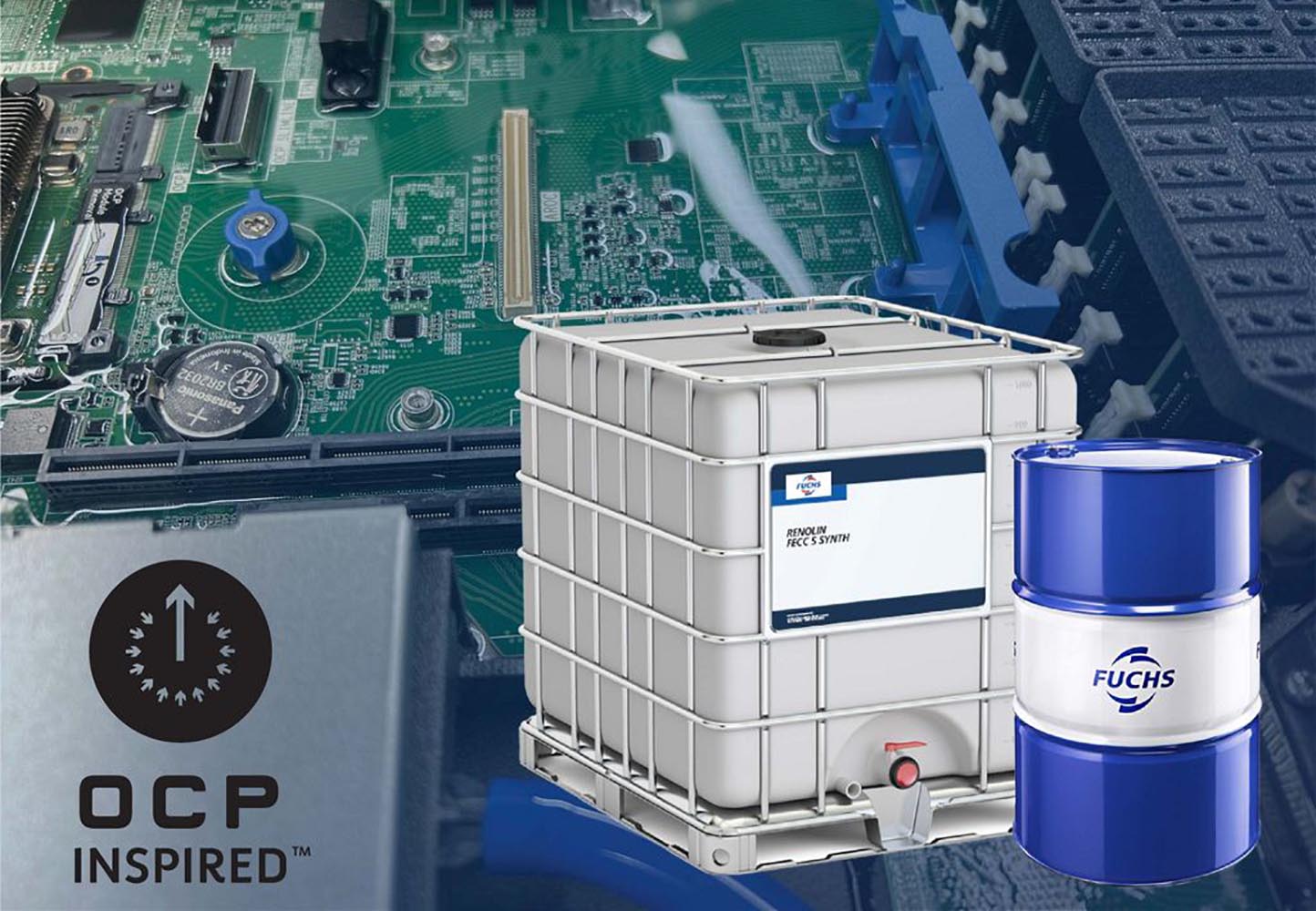
RENOLIN FECC 5 SYNTH becomes first OCP Inspired™ immersion coolant
FUCHS, the world’s largest independent lubricant supplier, has achieved a significant milestone by becoming the first to offer an OCP Inspired™ single-phase immersion coolant for data centres. The Open Compute Project (OCP), known for driving innovation in hardware design to meet the increasing demands on compute infrastructure, awarded the prestigious OCP Inspired™ designation to RENOLIN FECC 5 SYNTH.
OCP Inspired™ coolants are required to meet the technical standards for immersion fluids established in “Immersion Requirements Rev. 2.1.” Fluid properties such as volume resistivity, flashpoint, auto-ignition point, and acidity, amongst others, must fall within OCP required levels.
“We are excited to recognise RENOLIN FECC 5 SYNTH from FUCHS as the first OCP Inspired™ single-phase immersion coolant. This product embodies the OCP tenets offering a highly innovative and sustainable cooling solution for data centers. FUCHS’ commitment to aligning with community-driven requirements is an excellent example of how a member can accelerate access to new markets through the OCP,” said Steve Helvie, VP of Emerging Markets at the Open Compute Project.
RENOLIN FECC 5 SYNTH is formulated to deliver superior cooling performance in single-phase immersion cooling applications. This coolant is designed for use with high-voltage components, servers, switchgears, capacitors, and electrical equipment. It offers key attributes including:
- Dielectric properties for safe operation with sensitive electrical systems
- High breakdown voltage to ensure operational stability.
- Thermal and oxidative stability for long-lasting performance.
- Zero Global Warming Potential (GWP), promoting environmental sustainability.
The coolant also provides excellent corrosion protection, heat conductivity, and compatibility with common electronic materials, addressing the specific needs of modern data centres.












